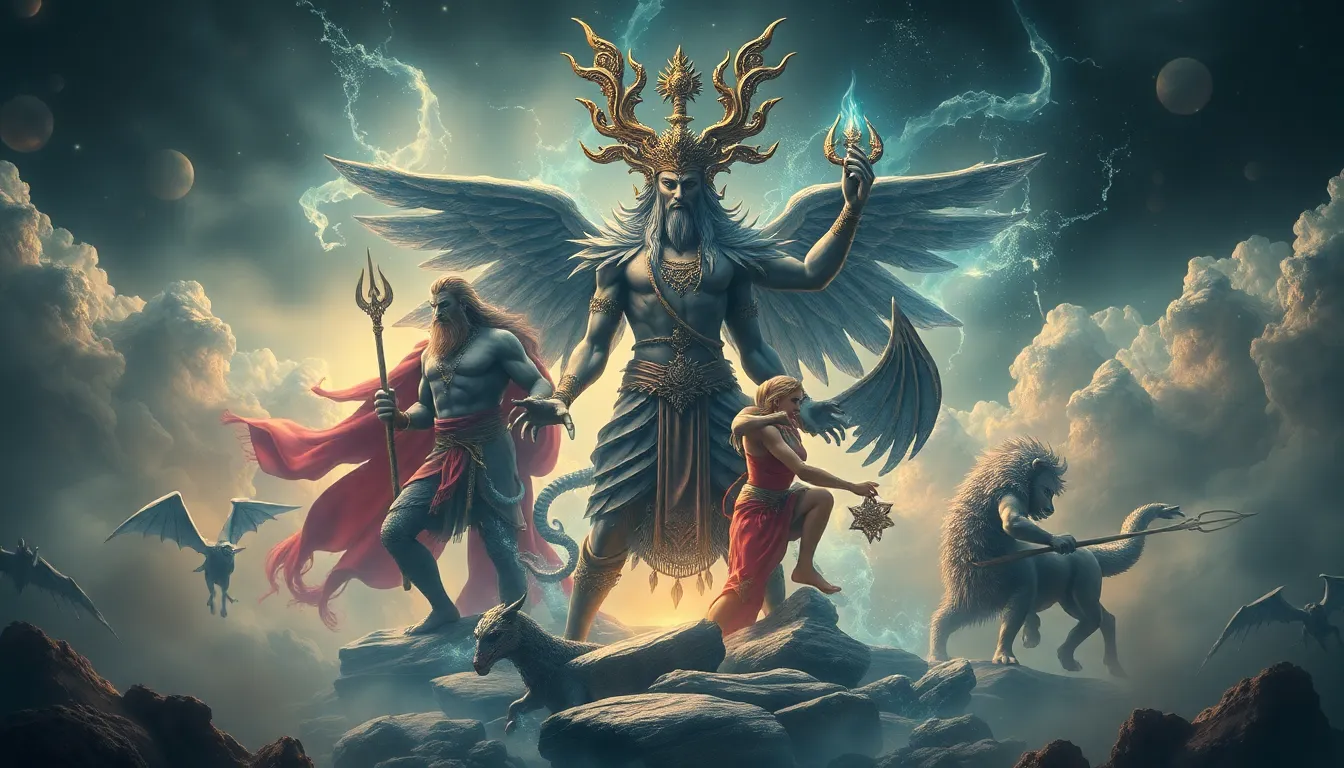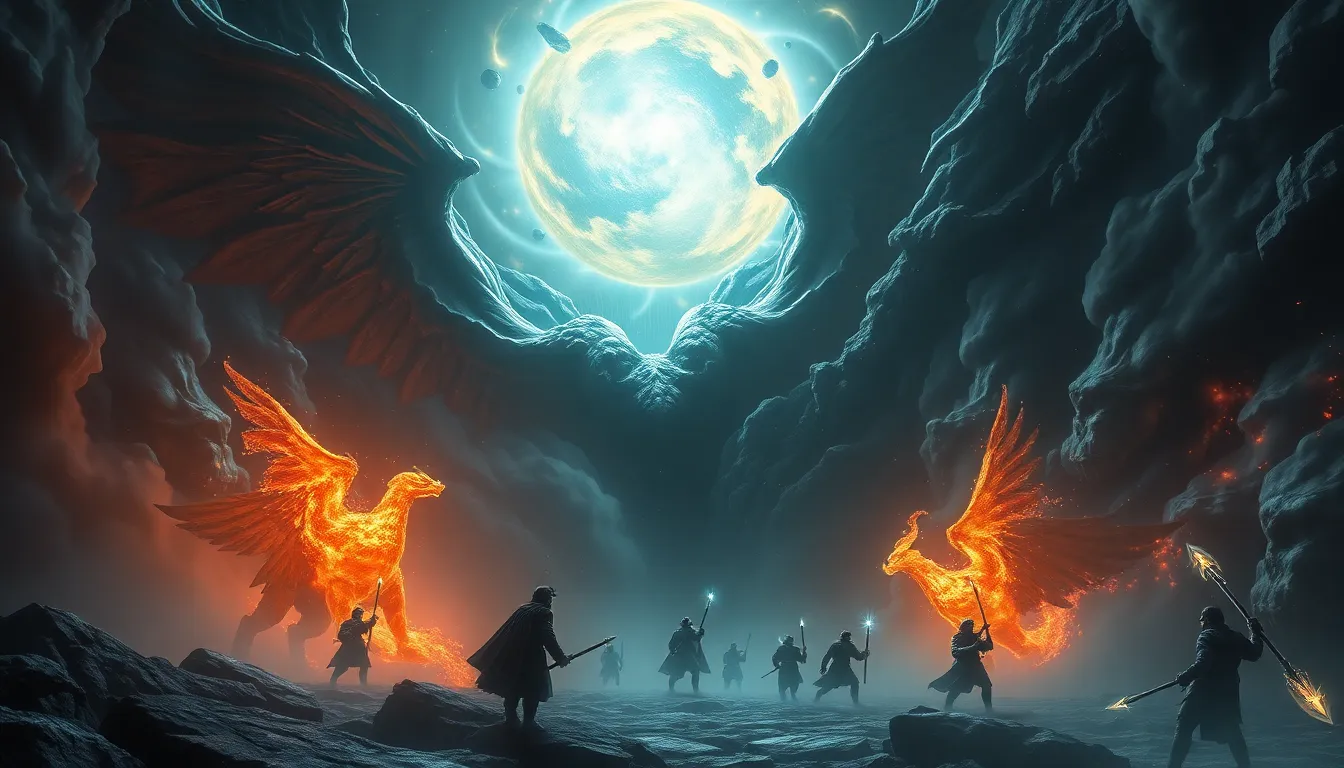The Most Powerful Ancient Deities and Their Mythical Realms
Introduction to Ancient Deities
Throughout history, ancient deities have played a pivotal role in shaping human culture, beliefs, and societal values. Defined as powerful supernatural beings, these deities reflect the hopes, fears, and moral frameworks of the civilizations that worshipped them. Myths surrounding these figures often served as allegories, imparting lessons and reinforcing societal norms.
This article aims to explore some of the most powerful ancient deities from various cultures, examining their attributes, realms, and the myths that surround them. By delving into these stories, we can better understand the complexities of human belief systems and the universal themes that transcend time and geography.
The Pantheon of Power: A Comparative Overview
The term ‘pantheon’ refers to the collective gods of a particular mythology, often organized hierarchically based on their power and influence. Across cultures, pantheons vary significantly, showcasing unique characteristics and power dynamics.
- Greek Pantheon: Dominated by gods like Zeus and Hera, representing human-like qualities.
- Egyptian Pantheon: Featured gods like Ra and Isis, often associated with nature and the afterlife.
- Norse Pantheon: Centered around gods such as Odin and Thor, emphasizing fate and valor.
- Hindu Pantheon: Characterized by a multitude of deities including Shiva and Vishnu, embodying complex philosophies.
In these pantheons, power dynamics often reflect societal structures. For instance, in the Greek pantheon, the familial ties among gods mirror the importance of kinship in Greek society, while the Norse emphasis on fate reflects the harsh realities of life in a challenging environment.
Zeus: King of the Greek Gods
Zeus is perhaps one of the most recognized ancient deities, revered as the king of the Greek gods. His attributes include thunder, lightning, and the eagle, symbolizing authority and power.
Mount Olympus, the mythical realm of the gods, serves as Zeus’s abode, representing a place of divine governance and cosmic order. Key myths such as the Titanomachy and the abduction of Europa highlight Zeus’s might and his role as a protector of both gods and mortals.
Ra: The Sun God of Ancient Egypt
Ra holds a central position in ancient Egyptian mythology, recognized as the sun god and a creator deity. He embodies the vital force of the sun and is associated with light, warmth, and growth.
The solar cycle was crucial to Egyptian life, as it dictated agricultural patterns and daily activities. Ra’s journey across the sky symbolizes the cycle of life and death. His nightly descent into the Duat, the Egyptian underworld, represents the struggle against darkness and chaos.
In the Duat, Ra faces various challenges, illustrating the eternal battle between order and disorder, a theme central to Egyptian belief.
Odin: The Allfather of Norse Mythology
Odin, the Allfather, is a complex figure in Norse mythology, embodying wisdom, war, and death. Known for his relentless pursuit of knowledge, he sacrificed his eye for a drink from the Well of Wisdom, symbolizing the value of sacrifice for enlightenment.
Asgard, Odin’s realm, is depicted as a majestic home of the gods, filled with grandeur and mystery. The Norse concepts of fate and destiny are of utmost importance in Odin’s narratives, particularly through the Norns, who weave the fates of gods and men alike.
Shiva: The Destroyer and Transformer in Hinduism
Shiva is a multifaceted deity in Hinduism known as both the creator and destroyer, embodying the duality of existence. His dance, the Tandava, symbolizes the cosmic cycles of creation and destruction, reflecting the intricate balance of life.
Kailash, the sacred mountain, is regarded as Shiva’s abode, representing spiritual elevation and connection to the divine. The concept of cosmic cycles is central to Shiva’s mythology, emphasizing the importance of death and rebirth in the universe.
Isis: The Powerful Mother Goddess of Ancient Egypt
Isis is celebrated as a powerful mother goddess associated with magic, healing, and motherhood. She played a crucial role in the myth of Osiris, highlighting her importance in Egyptian culture.
The Nile River, vital for agriculture and life, is often linked to Isis, symbolizing fertility and sustenance. Her mythical realm intertwines with the natural world, emphasizing the connection between divine forces and earthly life.
Key myths involving Isis, such as her resurrection of Osiris, carry deep cultural implications regarding the themes of love, loyalty, and the cycle of life and death.
Anubis: The Guardian of the Underworld
Anubis is the ancient Egyptian god associated with funerary rites and the afterlife. Often depicted as a jackal or a man with a jackal head, he embodies the protection of the dead and the process of mummification.
The Duat, the realm of the dead, plays a significant role in Egyptian belief, where Anubis guides souls through the afterlife. This underscores the balance of power between life and death, with Anubis serving as a guardian ensuring safe passage for the deceased.
Thor: The Norse God of Thunder
Thor, the hammer-wielding god of thunder, is celebrated for his strength and bravery. His attributes include Mjölnir, his magical hammer, and the goat-drawn chariot, symbolizing his role as a protector of both gods and humans.
Asgard, where Thor resides, is contrasted with Midgard, the realm of humans, emphasizing the connection and conflict between these two worlds. Key stories, such as Thor’s battle with the serpent Jörmungandr, illustrate his valor and the eternal struggle against chaos.
Conclusion
The exploration of these powerful ancient deities reveals the rich tapestry of human belief and cultural values across different civilizations. From Zeus’s dominion over Olympus to the nurturing presence of Isis along the Nile, these figures embody the complexities of existence and the universal themes of life, death, and the cosmos.
As we reflect on these myths and their meanings, we gain insights into the human condition, the nature of power, and the eternal quest for understanding our place in the universe. The legacies of these deities continue to resonate, reminding us of the enduring power of mythology and the human imagination.




